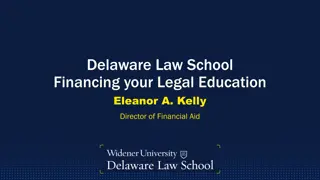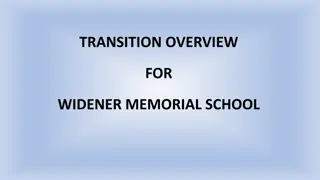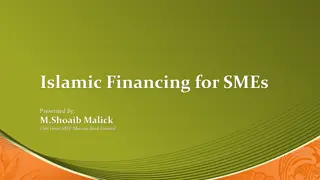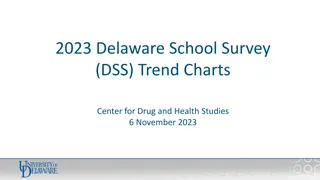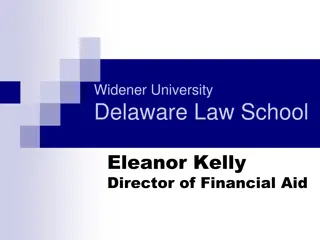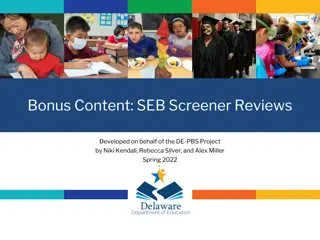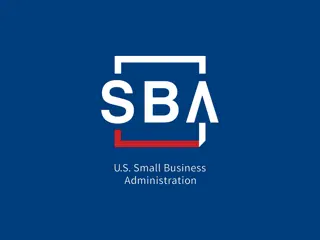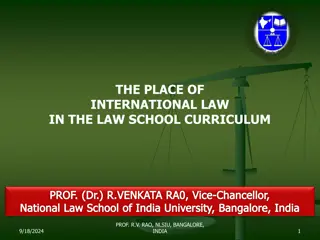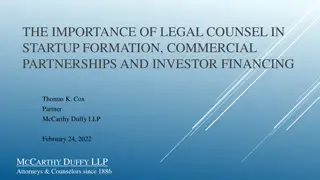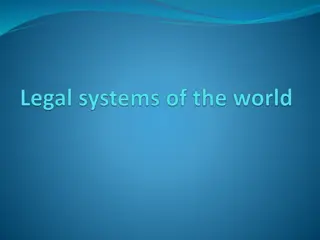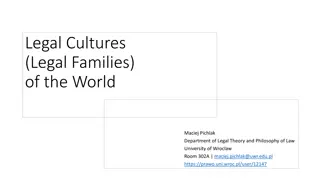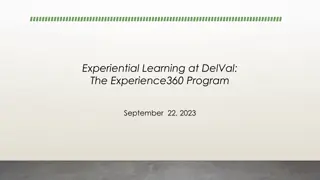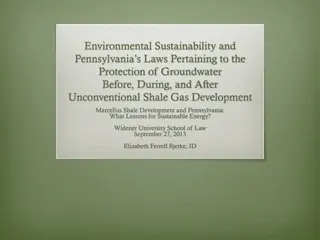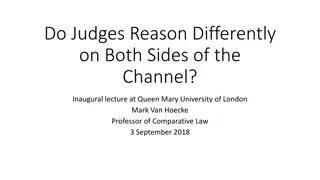Financing Your Legal Education at Widener University Delaware Law School
Explore the resources and costs associated with financing your legal education at Widener University Delaware Law School. Learn about financial aid options, types of education debt, and available scholarships, loans, and personal resources. Discover the breakdown of costs, including tuition, fees, living expenses, and more. Make informed decisions regarding your financial resources for funding your legal studies.
Download Presentation

Please find below an Image/Link to download the presentation.
The content on the website is provided AS IS for your information and personal use only. It may not be sold, licensed, or shared on other websites without obtaining consent from the author. Download presentation by click this link. If you encounter any issues during the download, it is possible that the publisher has removed the file from their server.
E N D
Presentation Transcript
Widener University Delaware Law School Eleanor Kelly Director of Financial Aid
Orientation Session Financing Your Legal Education
Agenda Financial Aid Overview How does it all work? Resources Available
Sources to pay for Law School Institutional Merit Based Scholarships Federal Government Federal Direct Loan Program Private Banks Educational Loans Your Personal Resources savings, income from work, investments
Cost of Attendance First Year Extended Division Commuter (living with parent) On or Off-Campus Tuition $40,200 $40,200 SBAFee/Exam Soft Fee 180 180 Personal 3,708 3,708 Transportation 3,105 3,105 Room & Board 12,582 4,500 Books 1,320 1,320 Loan Fees 1,274 1,274 TOTAL 62,369 54,287 Tuition is based on number of credits (24) x 1,675.00/credit
Cost Depends on Lifestyle Choices Housing Tuition* Transportation Food Entertainment Miscellaneous *Tuition is a fixed expense
The Big Question? Which of YOUR financial resources are you using to pay for your education? Savings In-school earnings Future income = (Student Loans)
Types Of Education Debt Three Types Federal Loans Unsubsidized Direct (Stafford) Loans Graduate Plus Loan Institutional Loans Merit Based Widener Scholar Loan Private Loans
Federal Direct Unsubsidized Loan Maximum Amount: $20,500.00 per academic year Interest can be paid by the student while in school, during grace periods and during deferment or accumulated interest can be capitalized upon entering repayment. Interest rate: 4.30% Fixed for Graduate Students (first disbursement after July 1, 2020) Fees: 1.059% origination fee charged at disbursement Grace period: 6 months Repayment term: 10 years Lender: William D. Ford Federal Direct Loan Program administered by the Department of Education
Federal GradPLUS Loan Interest rate: 5.30% Fixed (disbursed after July 1, 2020 and prior to July 1, 2021) Fees: 4.236% origination fee charged at disbursement Repayment term: 10 years but options available to extend. Repayment Begins: 6 month after graduation when a Post Half- time Enrollment Deferment applied. Credit Check: Credit check based 'no adverse credit'; income and credit score will not affect eligibility. Award Amount: Can borrow up to difference between cost of attendance and other financial aid.
Private Loan Terms Interest rate: Varies by program Fees: Vary by program Repayment term: Options and incentives vary by program Check with your lender for your loan s specific details Private Loan cannot be consolidated with Federal loans
Enrollment Status Requirements for JD Students Fall and Spring Semesters Need at least 4 credits in order to receive financial aid (loans). Merit aid enrollment requirements are listed in the award letter. Summer Semester Need at least 3 credits in order to receive financial aid (loans). Institutional Merit aid is not applicable to summer classes. Students must maintain at least half-time status for their loans to stay in deferment status. Please inform the offices outlined in your student handbook of any decision to withdraw or request a leave of absence from your classes.
Federal Graduate Student Entrance Counseling Go to https://studentaid.gov Select Complete Aid Process Complete Entrance Counseling You will be prompted to log-in using your FSA User Id and password Choose Graduate/Professional Student
Strategies for Success 1. Identify career & financial goals 2. Borrow minimum needed to achieve goals Make well-informed choices Develop and follow affordable budget 3. Maintain good credit 4. Practice good financial habits
A comprehensive personal finance education program, the MAX program teaches personal finance in a way that leverages the skills law school attracts and fosters; Takes a multi-format approach including interactive online lessons, webinars, in-person workshops and one-on-one counseling that lets you define your own path; Delivers information in quick and easy to understand components to fit into your demanding schedule; and Offers scholarship incentives to motivate you to stay on task and on schedule. To get started, go to http://AccessLex.org/MAXonline
How do you obtain Federal Loans? Complete the FAFSA each year at https://studentaid.gov . FAFSA determines eligibility to borrow and/or be awarded Federal Work Study. Complete the DLS Data Form online at http://delawarelaw.widener.edu/dataform to provide important demographic info and to notify the Financial Aid Office that you want to borrow or not through the Federal Direct Unsubsidized Loan Program If interested, apply for a Graduate PLUS loan at https://studentaid.gov Complete Graduate Student Entrance Counseling at https://studentaid.gov
Origination and Disbursement School certifies the loan at the student s request. Department of Ed approves the certification. School posts the loan funds to your school account and notifies DOE DOE approves the disbursement and releases loan funds to School. $$$ Tuition balance is paid from disbursement. Excess loan funds are refunded to student.
Refunds? Direct Deposit is available Sign up at MyWidener Search refund or direct deposit Select: Bank Info for Refund You will be prompted to login Log in your Bank Information OR a Paper Check will be sent to your home address
What if You were unsure of what your cost/needs would be when you applied for loans? Now that you have established your budget and know what your needs are, what are your options?
Cancelling or Reducing Loan Amounts Prior to disbursement/refund send a email from your Widener email address to DelawareLawFinAid@widener.edu or print your online award letter, circle reduce or reject and send it to DelawareLawFinAid@widener.edu After receiving refund make a payment to your online account using an E-check (do not use a debit or credit card) and send the Return Funds Request form to DelawareLawBursar@widener.edu alternatively, send a paper check with the form.
Resources http://studentaid.gov Repayment Estimator, sign MPN s, apply for GradPLUS, identify servicer http://nslds.ed.gov Access the Department of Education s Loan Database http://accesslex.org provides budget tools, loan repayment calculators
Enrollment Services Office Financial Aid & Bursar Phone (302) 477 2272 Fax (302) 477-2034 DelawareLawFinAid@widener.edu


